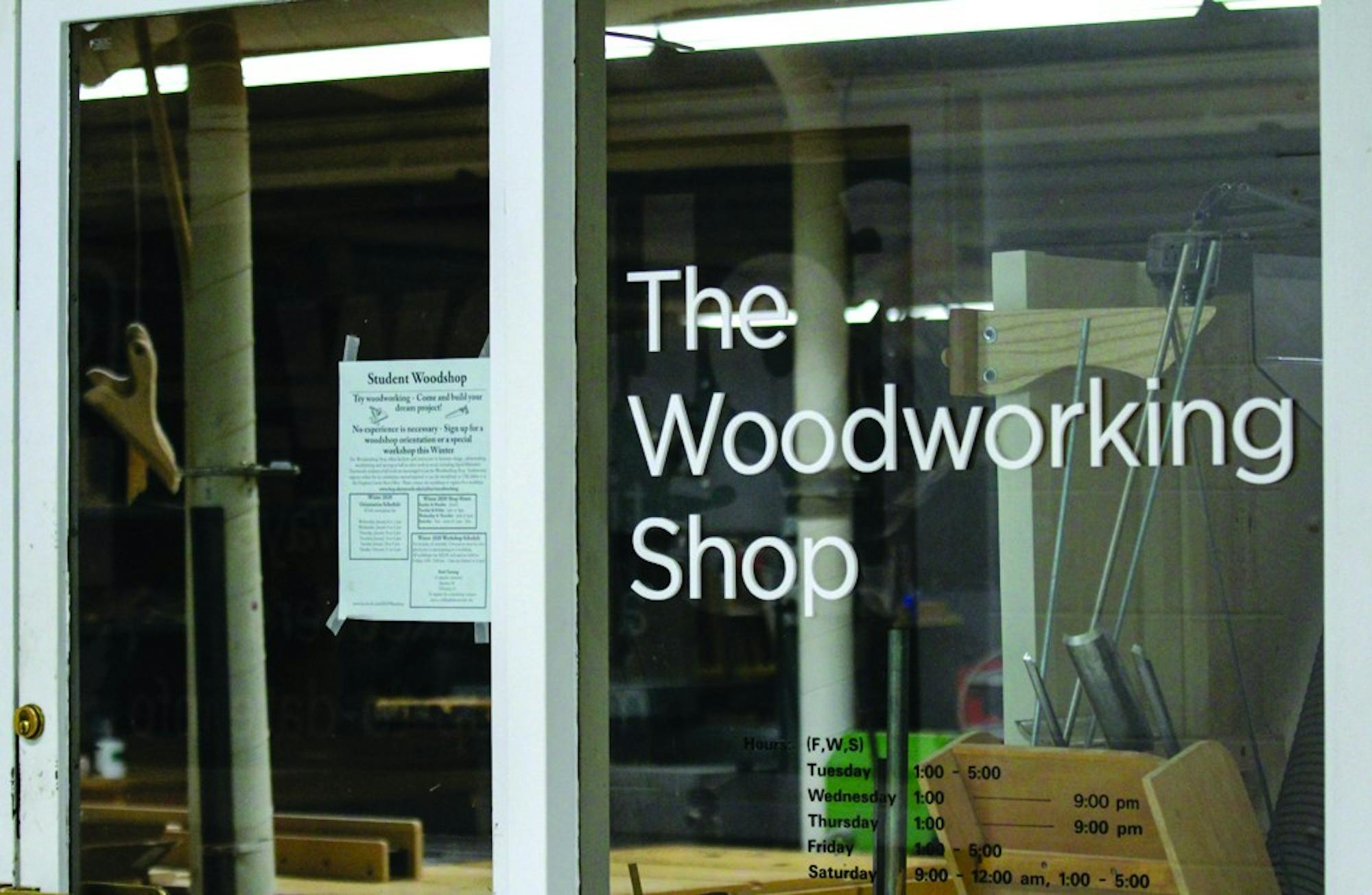In the basement of the Hopkins Center lies a commonly undervalued resource — the woodworking workshop. A bright, open space filled with large work tables topped with a myriad of projects in a variety of stages of completion, the woodshop is inviting yet intimidating. There are power tools lining the walls, cabinets loaded with joining materials and walls filled with different types of wood.
An impressive space in and of itself, the woodshop has been part of Dartmouth since the 1940s, yet relatively few current students have ever been inside.
Lila Rickenbaugh ’20 started using the woodshop for her senior seminar project last fall. She said that, like many other students on campus, she did not know how great of a resource the workshop could be.
Once discovered, students quickly realize the unique environment that characterizes the shop. Janice Chen ’19, the Hopkins Fellow for the woodshop, finds the culture to be one of the most appealing parts of woodworking.
“I think it kind of follows a different rhythm on campus,” Chen said. “I think when you’re doing school work, it’s very high intensity and you’re constantly striving for a particular quality to your work. I feel like learning in the workshop takes on a different valence. I feel like it’s a lot more freeing to work in there; you don’t really need to focus on conventional ideas of what success looks like. I think I’ve messed up a lot of times, and I think I’ve learned to enjoy messing up.”
Though intended to offer an outlet for students to work with their hands and escape the stresses of daily life, the mere idea of woodworking is scary for many people. The woodshop makes it clear that everyone is welcome and no experience is needed to begin woodworking. Yet just as with most things, starting is the hardest part.
While describing how she became comfortable within the woodshop, Rickenbaugh compares it to a dance — at first, frightening, but with a little initiative, quickly welcoming.
“Everyone’s kind of in their own world working on whatever it is,” Rickenbaugh said. “It can be intimidating. But once you talk to someone, they’re so nice and really helpful. I think whatever project you’re working on, they get really excited and get on board to help you get it done.”
Greg Elder, woodshop director, has been working at the Dartmouth workship for over 30 years. He said he loves working with students of all skill levels as he is able to see them discover, learn and grow throughout their time in the shop.
“All projects — no matter how simple — can be an exciting and transformative experience,” Elder said. “People can come in and drill a hole and they’re very excited. That’s wonderful; [all projects] start with nothing more than an idea which gets sketched out and then the next thing you know, there it is.”
Some students enjoy that process of turning their ideas into a tangible object.
“I’ve just learned that I really love to work with my hands. [The woodshop is] a really good thing, at least for my personality, to insert into my normal Dartmouth schedule where I do a lot more academic work,” Rickenbaugh said.
In addition to offering a balance to the traditional demanding academic schedules of Dartmouth students, Chen said that the woodshop also teaches skills such as dedication, persistence and patience.
“I think I’ve learned a lot of patience working in the workshop,” Chen said. “I think I came into Dartmouth being a very impatient person; I would really just want to get things done. I think that’s still important when you’re trying to finish projects and it’s important to have that drive and push ideas forward.”
Most students enter the workshop with a project in mind, but they leave with more than just their homemade wooden bowl, table or guitar.
“I think it is a very welcoming community and it’s just very wholesome and charming. I hope that other students can find that as well,” Chen said.
The woodshop welcomes students of all experience levels. All beginners must attend a woodworking orientation session before they can begin working during open shop hours.



